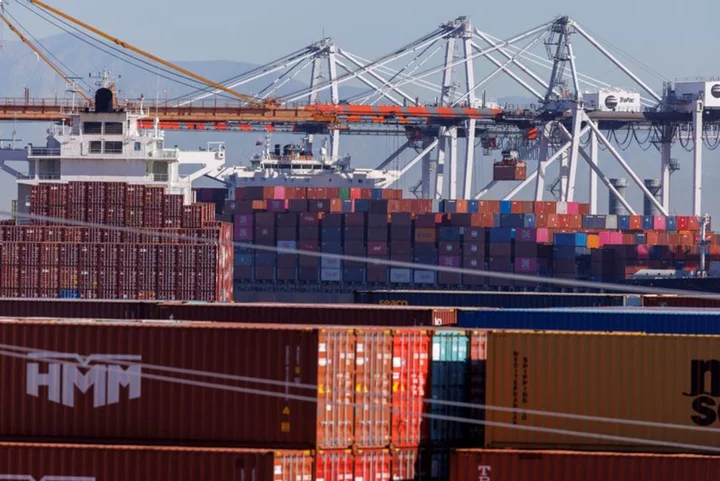Shares of Apple fell by 2.9% on Thursday following reports that China plans to expand a ban on the use of iPhones to government-backed agencies and companies.
Investors are fretting over the ability of the world's most valuable public company to do business in the world's second-largest economy.
Apple (AAPL) notched its largest daily fall in over a month on Wednesday. The company lost about $200 billion in two days, and its stock is currently the worst performer in the Dow Jones Industrial Average.
The bans could be an ominous sign for Apple.
China is the largest foreign market for the company's products, and Chinese sales represented about a fifth of the company's total revenue last year. Apple doesn't disclose iPhone sales by country, but analysts at research firm TechInsights estimate that there were more iPhone sales in China than in the United States last quarter. Apple also produces the majority of its iPhones in Chinese factories.
Cupertino, California-based Apple also plays an important role in Beijing's economy, wrote Brandon Nispel, an analyst at KeyBanc Capital, on Wednesday. Because of that, the company "has historically been viewed as relatively safe in China from government restrictions." These reported bans present an important question, he wrote: "Is the government changing its stance?"
On Wednesday, the Wall Street Journal reported that China had banned the use of iPhones for central government officials and that managers had been notifying staff of the ban via chat groups or meetings.
On Thursday, Bloomberg reported that those bans had been extended to state-backed firms, including energy giant PetroChina, which employ millions of workers and control vast swaths of the Chinese economy.
Analysts at Bank of America wrote in a note Thursday that the potential iPhone ban comes on the heels of a new high-end flagship smartphone released by Chinese manufacturer Huawei. The timing, said analysts, is "interesting."
The US government said Tuesday it was investigating the new smartphone. National Security Adviser Jake Sullivan said during a White House press briefing that the United States needs "more information about precisely its character and composition" to determine if parties bypassed American restrictions on semiconductor exports to create the new chip.
Tech companies fell on the news, the Nasdaq Composite dropped by about 0.9% on Thursday and the semiconductor sector fell by more than 2%.
CNN has reached out to Apple and to China's Ministry of Foreign Affairs but has not received a response.









